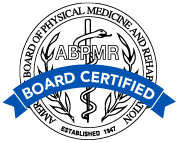Completion of Residency is just the first step. About one month after graduating, you have to sit down for the first part of board certification, then about nine months later, part two. Cue your best godfather impression: ” Just when I thought I was out, they pull me back in – Micheal Corleone.”
The thought of summarizing your entire three years of medical residency knowledge into a matter of clicks, only to try to demonstrate clinical medical expertise virtually in a dozen minutes seems a bit unjust. However, as a survivor, I will happily admit that there is light at the end of the tunnel, and the juice is worth the squeeze. Below are my tips on how I prepared.
Part I
- The details
- Refer to the official website here.
- Administered Early August of your graduation year
- Pay early to avoid the $500 increase for late payments.
- Results are provided 6-8 weeks later.
- The test consists of 325 questions divided into two 3-hour sessions, with a 60-minute break between sessions.
- The focus is testing knowledge of basic sciences and clinical management in physical medicine and rehabilitation
- 1. Type of problem/organ systems
- 2. Focus on patient management
- How I studied
- The resources that I used:
- The ABPMR website provides many tools. Two of the ones I used were the practice questions (the 100s) and the outline of the exam, which shows the percentage breakdown of topics. Find that here.
- My study course
- I started two months prior to the exam date. I used the following resources.
- Physical Medicine and Rehabilitation Board Review by Dr. Sara Cuccurullo
- PM&R Recap Videos
- QBanks: AAPM&R(Plus available SAE questions), Board Vitals , Q&A Physical medicine
- Two months out, I used my previous SAE to identify my weak areas. Then, I took the 100 Q from ABPMR. Then, I focused on those topics during my first pass of the Board review book (yes, I read the whole thing). I would highlight only the items that I was unsure of or did not know. My time was approximately 75% reading and videos and 25% Questions. I took time to mark the incorrect ones and understand “why” I got them wrong.
- One month out, I shifted to mostly 85% Timed Questions and 25% reading or watching videos. I reread the board review when I had time to focus only on highlighted material.
- Two weeks out: I was pretty fried from reading and answering questions. I mainly focused on all the incorrect ones. Then, last week, I watched videos at twice the speed to calm my nerves, but I wonder if I learned much.
- I started two months prior to the exam date. I used the following resources.
- The resources that I used:
Part II
- The details
- Refer to the official website here.
- Administered Late April-Early May
- Pay early to avoid the increased amount of $500 for late payments.
- Results arrive 6-8 weeks later.
- The test is virtual. It consists of two 50-minute exam sessions, during which examiners run through four patient vignettes. There is a 10-minute break between sessions.
- They will test you across five clinical skills: 1. Data acquisition 2. Systems‐based practice 3.Problem solving 4. Interpersonal and communication skills and professionalism 5.Patient management
- c
- The resources I used:
- The ABPMR website provides many tools, particularly videos about the exam and how to prepare. Additionally, you can find an outline of the testing parameters. Find that here.
- I used this book: Physical Medicine & Rehabilitation Oral Board Review.
- My study course
- I started later than I had anticipated, close to two months out.
- I would run through 4 cases with my previous Co-Resident and Chief 3-4 times a week. I also did a few cases with my Co-Fellow and thankfully had an attending take a few days to give us some helpful advice.
- We would set a stopwatch and time our responses. Then, we would run through the case and discuss the details of the responses.
- During practice, I think it is essential to have your partner ask: “Is there anything else?”. For me during the exam it was jarring to hear this and threw me off.
- Make a list of essential questions for different topics you may not have seen since finishing residency. Create a template of pertinent questions you should ask if that case arises. For example, in pediatric cases, remember that it is important to know the history surrounding the pregnancy, birth, and post-birth. This template will come in handy during the exam and help keep you on track.
- If you get tripped up during the exam, focus on your bread and butter PM&R. Treat it as you would any consultation you have done. The questions are not made to fool you. The interviewers will have a serious demeanor; it’s on purpose; do not take it personally. Interviewer questions aim to redirect you to stay on track and increase your points. You can ask them to repeat themselves, including physical exam or imaging. Know the reasoning behind labs, imaging, or treatment that you recommend. Use the break between sessions to relax and refocus before starting.
- The resources I used:
Spoiler:

I passed.
TLDR:
- Yes!
If you have any questions feel free to reach out email.
Hope you learned something.
